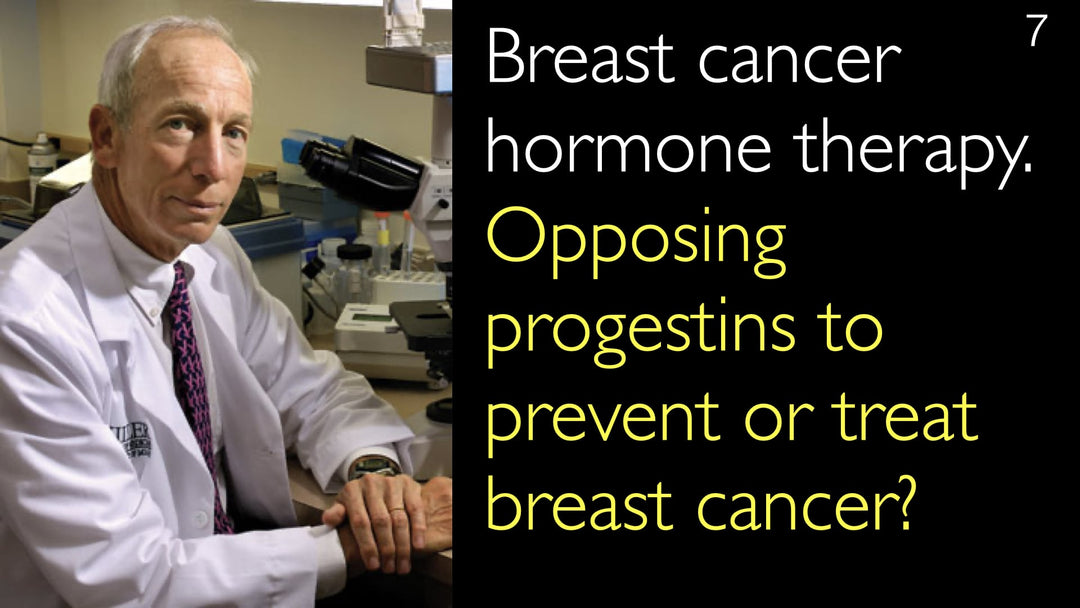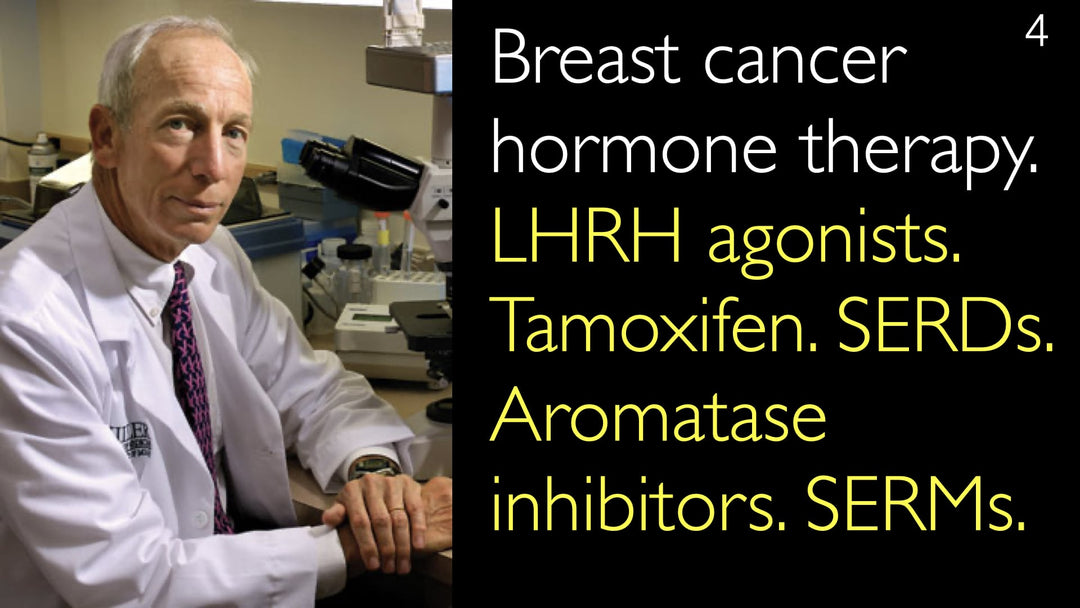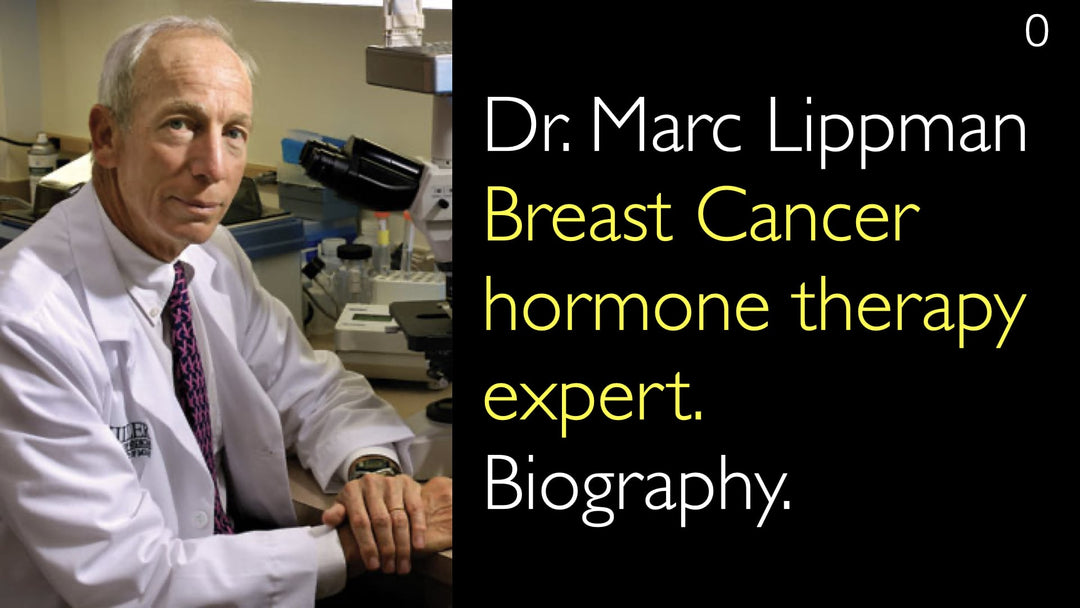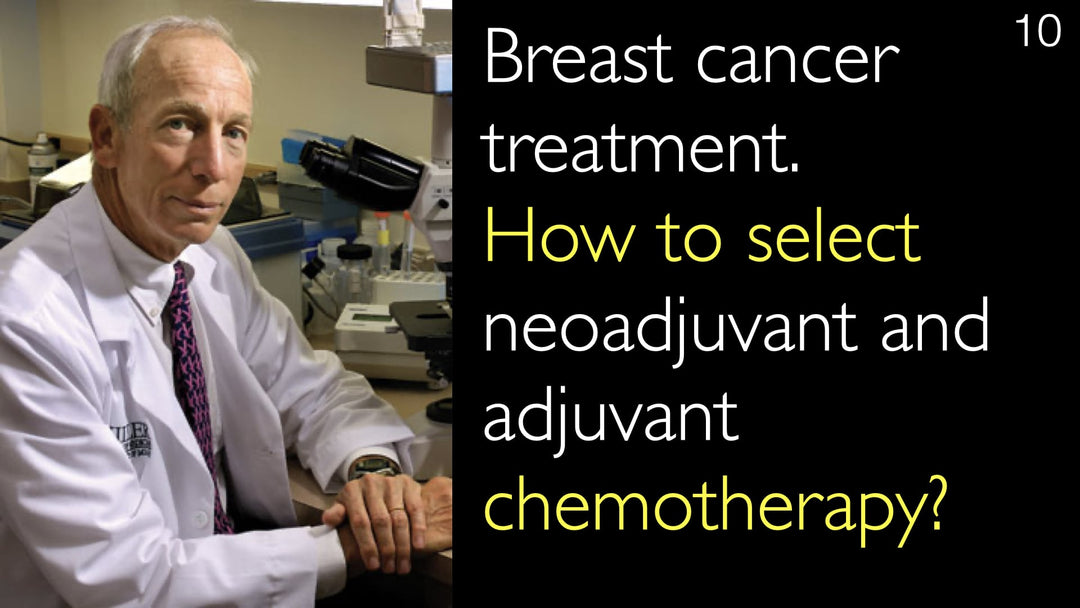Leading expert in breast cancer, Dr. Marc Lippman, MD, explains the complex role of progestins and anti-progestins in breast cancer treatment. He details the clinical and political challenges surrounding anti-progestin drugs like RU-486. Dr. Marc Lippman, MD, discusses the mild success of anti-progestins and the emerging potential of anti-androgen therapies, especially for triple-negative breast cancer.
Anti-Progestin and Anti-Androgen Therapies in Breast Cancer Treatment
Jump To Section
- Anti-Progestin Breast Cancer Therapy
- Political Challenges of RU-486
- Clinical Efficacy of Anti-Progestins
- Androgen Receptor in Breast Cancer
- Anti-Androgen Therapy for Triple-Negative Cancer
- Future of Breast Cancer Therapies
- Full Transcript
Anti-Progestin Breast Cancer Therapy
Dr. Marc Lippman, MD, discusses the concept of opposing progestins to treat breast cancer. He explains that anti-progestin medications can affect breast cancer cells in a manner analogous to anti-estrogen drugs. This approach is biologically rational because many breast cancers express progesterone receptors alongside estrogen receptors.
Political Challenges of RU-486
The development of anti-progestins has occurred within a highly politicized environment. Dr. Marc Lippman, MD, notes that drugs which block progestin action, such as RU-486, are perfect for inducing abortion in premenopausal women. These agents were initially developed by organizations like the Population Council as cheap contraceptives or "morning-after" pills.
This association has led to an unpleasant reputation for these compounds. Dr. Marc Lippman, MD, emphasizes that this political backdrop has made it difficult to conduct clinical studies in certain cultures, potentially hindering research into their oncological applications.
Clinical Efficacy of Anti-Progestins
Despite the challenges, anti-progestins have shown some activity as steroid agents in breast cancer treatment. Dr. Marc Lippman, MD, describes their success as "mild." The clinical data, while not overwhelmingly positive, supports the scientific rationale for targeting the progesterone receptor pathway.
Dr. Anton Titov, MD, explores this concept with Dr. Lippman, who confirms that it makes logical sense to pursue this therapeutic avenue given the receptor status of many tumors.
Androgen Receptor in Breast Cancer
The conversation with Dr. Anton Titov, MD, shifts to another hormonal pathway. Dr. Marc Lippman, MD, reveals his own foundational research in this area, noting that his team first detected androgen receptors in breast cancer nearly 50 years ago. This work was published in the 1970s, establishing the presence of this receptor in breast cancer cells.
This historical discovery laid the groundwork for understanding the full spectrum of hormonal influences on breast cancer growth and potential treatment targets beyond estrogen and progesterone.
Anti-Androgen Therapy for Triple-Negative Cancer
Targeting the androgen receptor is now an emerging story in breast cancer therapeutics. Dr. Marc Lippman, MD, highlights recent trials involving anti-androgens that are non-virilizing, meaning they do not cause masculine characteristics in women. These agents have shown some promising successes.
Particular excitement surrounds their application in triple-negative breast cancer, a subtype that lacks estrogen, progesterone, and HER2 receptors and has historically had fewer targeted treatment options. Dr. Lippman describes this area of research as a story that is currently unfolding.
Future of Breast Cancer Therapies
The discussion between Dr. Anton Titov, MD, and Dr. Marc Lippman, MD, underscores the ongoing evolution of hormonal therapy for breast cancer. While anti-progestin therapy faces unique hurdles, the principle of opposing specific hormonal pathways remains sound.
The exploration of anti-androgen treatments represents a promising frontier, especially for difficult-to-treat cancers. This continuous research effort aims to provide more targeted and effective options for patients based on the specific biological characteristics of their tumors.
Full Transcript
Dr. Marc Lippman, MD: What about opposing progestins? In the same way as anti-estrogen medications, anti-progestin medications can affect breast cancer.
Let's say there are some anti-progestins. This has been a very politicized environment because, if you think about it for a moment, you'll realize that a drug that blocks progestin action would be a perfect drug to induce an abortion in premenopausal women.
These drugs, like RU-486 and others, were developed by organizations such as the Population Council as a cheap contraceptive or as a morning-after pill, if you wish. They have enjoyed a very unpleasant reputation, and it's been hard to get some studies done in certain cultures because of this.
Anti-progestins as a treatment for breast cancer have had some mild success. They do have activities as steroid agents, but they haven't been very successful. It makes sense what you're saying: many breast cancers are progesterone receptor-positive as well as estrogen receptor-positive.
The same could be said about drugs that target the androgen receptor. We first showed—I hate to say, nearly 50 years ago—that it was easy to detect androgen receptors in breast cancer. We published that in the 1970s.
More recently, there have been some trials of anti-androgens or non-virilizing androgens in women with breast cancer, particularly triple-negative breast cancer. There have been some successes there, and that's a story that's unfolding.







